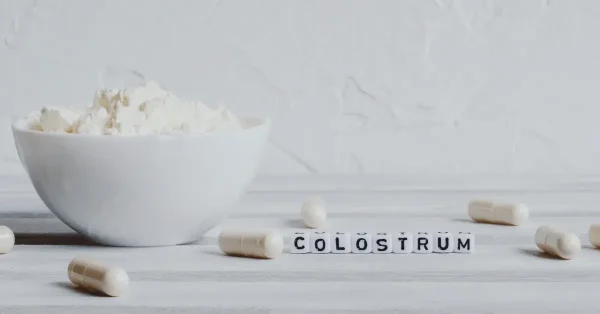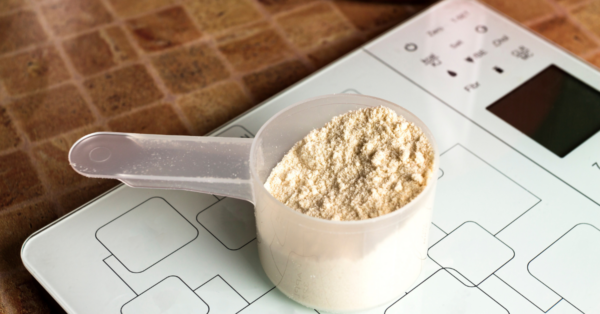It has been understood for a long time that poor nutrition is a major risk factor for non-communicable diseases such as type 2 diabetes, cardiovascular disease, and others. What we are just starting to realize is that the very same unhealthy habits that are harmful to our physical health can also affect our mental health in a multitude of ways.
The Link Between Nutrition and Mental Health
Overall diet quality has been linked with mental health in several different populations across the globe.
In general, people who consume “western-style” diets are more likely to have the most common mental health disorders (i.e. clinical depression or anxiety) when compared with those whose diets are higher in vegetables, lean meats, fish, and whole grains. This has been demonstrated in adults all over the world, as well as children, adolescents, and even pregnant mothers looking at postpartum depression risk. Similar associations have also been seen with other conditions such as bipolar disorder. (1)
It is important to keep in mind that association is not the same as causation, meaning that although poor diet quality and mental health disorders may go together, we don’t yet know if it’s the diet causing the disorder, the disorder causing the poor dietary habits, or some third factor causing both poor diet and poor mental health. There are, however, some potential mechanisms through which certain nutrients or overall diet could be directly impacting mental health in tangible ways.
Inflammation and the cell-mediated immune response are both key components of the pathology of mood disorders (2). The cell-mediated immune response requires various vitamins and minerals to function properly, while inflammation is modulated by specific nutrients, like omega-3 fatty acids, and by overall dietary patterns.
Obesity and mood disorders are both chronic low-grade inflammatory states, suggesting that inflammation may be an important link between obesity and poor mental health (3).
Both cell-mediated immunity and the immune response are heavily influenced by the gut microbiome, which in turn is very sensitive to diet quality. The gut microbiome also influences cognitive function and behavior through direct communication with the brain (4).
Certain micronutrients are essential for brain health, development, and proper function.
In fact, it’s not uncommon for patients with mental disorders to suffer from deficiencies of omega-3 fatty acids, various vitamins and minerals, and specific amino acids that are precursors to neurotransmitters, such as tryptophan (5).
In general, the typical “western diet” which is high in red meat and processed foods does not provide an adequate amount of these nutrients the way that a diet high in fruits, vegetables, whole grains, and fish do.
Omega-3 fatty acids are of particular interest because of the multiple important roles they play. Omega-3 fatty acids are anti-inflammatory mediators and therefore may help alleviate the negative effects of inflammation on mental health.
Eicosapentaenoic Acid (EPA) is an omega-3 fatty acid found in fish, which the body also converts to docosahexaenoic acid (DHA). EPA is a precursor to certain chemicals the brain needs, and both EPA and DHA are involved in signaling in the brain.
Omega-3 fatty acids are therefore essential to the proper functioning of the brain and correcting their deficiency is thought to improve chemical imbalances that are involved in mood disorders (6).
On a less biochemical and more human level, it’s no secret that human beings have a relationship with food that goes far beyond mere nourishment.
Food is a huge part of our social, cultural, and emotional lives. Food can bring people together or distance them from one another.
Food has the power to bring us comfort or to cause us to feel guilt or shame. Our emotional relationship with food is complex, and the way it intertwines with our mental health can be highly personal and difficult to define. But that relationship undeniably plays some role in our mental wellbeing.
Finally, it is impossible to talk about mental health without acknowledging the issue of food insecurity. Food insecurity is associated with poorer mental health status all across the globe (6).
The reasons for this are also complex, but they include a lack of access to healthy foods that provide all the essential nutrients for brain function. Another likely factor is the chronic stress and stress-induced inflammation caused by financial and food insecurity. Stress and inflammation are both contributors to poor mental health.
Current State of The Evidence
Nutritional psychiatry is an up-and-coming field and the evidence base is still in its infancy in many ways. But here is a look at some of the research behind the connections between nutrition and mental health:
Researchers have been exploring several different micronutrient supplements as therapy for various mental health conditions. For example, consuming 1 to 2 g of EPA per day in supplement form has been shown to improve symptoms of depression, bipolar disorder, schizophrenia, and obsessive-compulsive disorder. Folate, vitamin B12, and magnesium have also been associated with improvement in depression symptoms. (7)
Supplements are one way to take in nutrients, and they are particularly helpful to correct a specific deficiency (or multiple). Consuming an overall adequate diet, however, is the ideal way to get in all the nutrients you need and prevent deficiencies from occurring in the first place. A growing body of research has been exploring overall diet quality and its implications on the prevention and treatment of mental health disorders.
Two systematic reviews have suggested that a Mediterranean-style diet (or a diet high in fruit, vegetables, fish, and whole grains) may be associated with decreased risk of depression and other diseases involving the brain. (8) (9) This implies that diet can be an important tool for maintaining good mental health.
In the first randomized controlled trial exploring diet improvement as a treatment for mental health disorders, researchers found that a 12-week dietary intervention produced significantly greater symptom improvement than a social support intervention in patients with clinical depression (10). The dietary intervention consisted of an essentially Mediterranean-style diet with coaching by a clinical dietitian, and the symptom improvement was found to be independent of weight change.
Last but not least, a recent study among Japanese adults found that dietary intake of calcium and other nutrients found in dairy products was associated with better mental health scores (11). This suggests that consuming dairy products may be good for mental health, at least in Japanese adults.
What to Eat for Better Mental Health
So what’s the bottom line? What should we be doing to improve our mental health from a nutritional point of view?
- Eat more fruits, vegetables, fish, and whole grains, and include some dairy. In other words, follow a generally healthy or Mediterranean-style diet. You’ll get all your mental health-promoting vitamins and minerals from the fruits, vegetables, whole grains, and dairy. The whole grains, fruits, and vegetables will provide prebiotic fiber to maintain your healthy gut bacteria, and some fermented dairy products can help with that too. The fish, especially oily fish, will supply plenty of omega-3 fatty acids to keep your brain functioning in tip-top shape and balance inflammation.
- Mix it up. Eat a variety of different fruits and vegetables, because they each have different micronutrients in them. Eating a variety of protein sources will ensure that you get all your essential amino acids which can be converted to the neurotransmitters your brain needs.
- Maintain a healthy weight. Obesity induces chronic low-grade inflammation, which may contribute to mental health disorders.
- Be kind to yourself. We humans have a complex emotional relationship with food. Recognize and understand that, and then cut yourself some slack. Try not to let food be an additional source of stress in your life.
- Get involved in initiatives to combat food insecurity in your community. By helping to promote the physical and mental health of your community at large, every one of its members will benefit, including you.
Conclusion
Many of the same unhealthy habits that lead to poor physical health have a similar effect on mental health. Making improvements in your diet can help you achieve better mental health, and you don’t need to do anything too complicated. The same types of foods that are healthy for our bodies pare also healthy for our brains, especially fruits, vegetables, whole grains, fish, and dairy.
- https://www.ncbi.nlm.nih.gov/pmc/articles/PMC3534562/
- https://pubmed.ncbi.nlm.nih.gov/20599581/
- https://pubmed.ncbi.nlm.nih.gov/21165712/
- https://www.tandfonline.com/doi/full/10.3402/mehd.v26.26191%40zmeh20.2015.26.issue-s2
- https://www.ncbi.nlm.nih.gov/pmc/articles/PMC2248201/?report=reader
- https://pubmed.ncbi.nlm.nih.gov/28457747/?from_term=food+insecurity+AND+mental+health&from_pos=6
- https://www.ncbi.nlm.nih.gov/pmc/articles/PMC2248201/?report=reader
- https://pubmed.ncbi.nlm.nih.gov/23720230/
- https://academic.oup.com/ajcn/article/99/1/181/4577292
- https://bmcmedicine.biomedcentral.com/articles/10.1186/s12916-017-0791-y
- https://nutritionj.biomedcentral.com/articles/10.1186/s12937-019-0515-6








